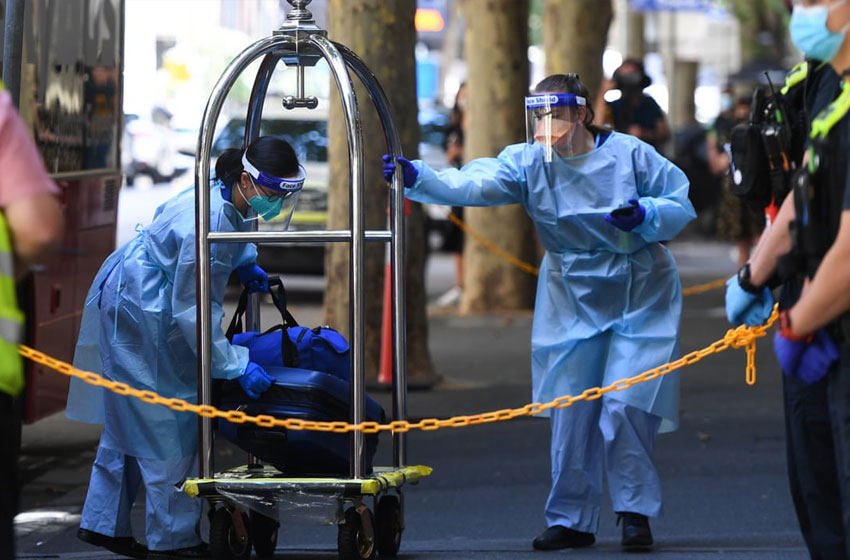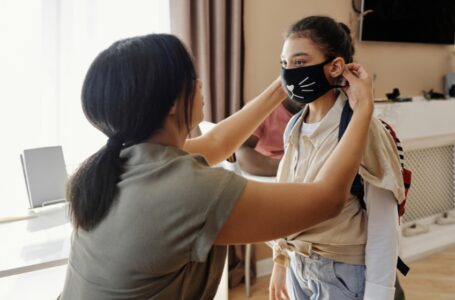Why Australia’s world-class COVID quarantine system has witnessed breaches.

Thousands of Australians are stranded abroad. Why is this? If you’re travelling to Australia, you must provide evidence of a negative COVID-19 PCR or RT-PCR test to your airline when checking in for your flight at the departure point. Anyone who has a negative test result and enters Australia must still complete mandatory 14-day quarantine at designated hotels. The hotel quarantine process was heralded as world-class by the government when introduced last year, effectively closing the country off. Since the system was introduced, over a quarter of a million people have gone through hotel quarantine. However, the system has proven not to be foolproof. In fact, breaches have resulted in serious consequences.
Initial Failure
The first reported breach was in July of last year when a security guard in a Melbourne quarantine hotel became infected. There was no evidence of any advertence on the part of the guard; how the guard became infected remains unknown. However, the consequences were dire for the local community. Almost 30,000 COVID cases, and 909 deaths, being recorded in the area as a direct result. On the positive, it led to stricter rules governing the system being implemented.
Subsequent Failure(s)
A reported breach in Adelaide confused authorities when a security guard tested positive. The guard, observed on CCTV, did not encounter any guests directly. However, his presence in the corridor was deemed to be enough to become infected. Namely, breathing air that escaped guest rooms.

In February, a Melbourne woman caught the virus from a room across the hallway. It was suspected guests opened doors around the same time (to pick up their meals), and the transfer of air carried the virus. Around the same time, it was reported that a Sydney guest tested positive after exiting their 14-day quarantine. They picked up the infection in the hotel.
While quarantine prevents droplets from spreading, there is a worry the virus can be carried much easier than initially determined. Add to this the transmissibility of the variants (Indian, Brazilian, South African), and we open guests to a variety of contagion. The importance of better facemasks for hotel workers, effective air conditioners, and ventilation, are deemed to be worthy considerations.
Actions
Hotels in States reviewed systems from earlier this year, including face shields and higher-quality masks. Specialised engineers reviewed air conditioners and air flows. In addition, hotel staff is being checked every day. However, is this enough?
Solutions
There is a call for quarantining in isolated areas and not in populated city centres.
Some believe facilities should be in remote areas such as desert or outback locations. Facilities such as Darwin’s Howard Springs have been suggested; an upgraded mining camp with 3,000 beds. Also, the immigration detention centre on Christmas Island has been suggested.
There is strength in these suggestions, but a chain is only as strong as its weakest link. Therefore, strict but robust measures need to be in place to ensure the virus does not transmit in the air or on surfaces, escaping into the wider Australian communities. Such an escape could find itself on a flight back to Asia.

In the Meantime
Objectively, packing overseas arrivals into hotel rooms with communal corridors and ventilation systems increases the risk of spreading the virus among workers, guests, and the wider community. The risk is heightened when workers return to their communities after their shifts. However, the system is destined to continue in its current format, and Australia’s reliance on the hotel quarantine programme is here to stay. What that means for nationals and diaspora returning to Australia is a protracted, expensive, and stressful stay in a room for two weeks, wherever that may be located.
Last month, the National Cabinet restricted the number of flights coming in from India by a third as India was deemed a high-risk country given the B.1.617 strain. That means the number of Indians entering Australia has been curtailed in short to medium term. Anyone looking to travel to or from India should be mindful of the legal requirements when entering Australia and add two weeks to their itinerary to account for quarantine.







